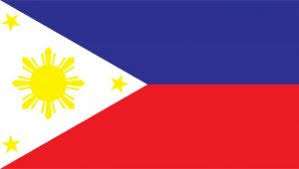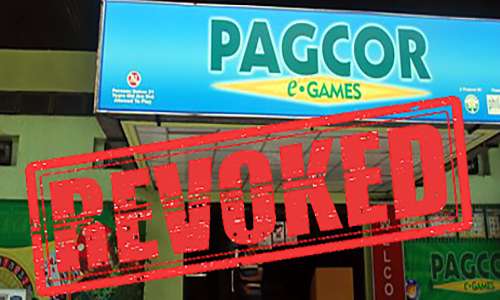Philippines PAGCOR Suspends Issuance of Online Gambling Licenses
It’s an unsettling time for a handful of online gambling operators in the Philippines following this week’s decision by PAGCOR, the Philippines’ state-run Philippine Amusement and Gaming Corp., to suspend the issuing of all online-gambling licenses, effective immediately. The freeze was implemented this week by Andrea D. Domingo, Pagcor’s newly appointed chairman, under the direct order of the Philippines’ newly-elected president, Rodrigo Duterte.
 “For now, we will freeze the issuance of licenses for these types of games, then review what the president said,” Domingo told a Filipino radio outlet, in response to questions about Duterte’s directive regarding PAGCOR.
“For now, we will freeze the issuance of licenses for these types of games, then review what the president said,” Domingo told a Filipino radio outlet, in response to questions about Duterte’s directive regarding PAGCOR.
Duterte, for those unfamiliar with the political situation in the Philippines, is an extremist candidate who rode a populist wave of hate to an election victory, not totally unlike what happened in the UK with Brexit vote orchestrated by Nigel Farage and his UK Independence Party, or that threatened in the United States by the specter of Donald Trump running for President this fall.
Duterte, who has included anti-crime and anti-corruption planks in his appeal to Filipinos, has attacked his various targets with extreme aggression in the first days of his presidency, most particularly in his declared war against Asian drug lords, their networks, and even addicts themselves. Duterte, last week, publicly named five high-ranking Filipino police officials who he accused of protecting those involved in the drug trade, and he has even called on citizens to shoot drug dealers themselves, saying, “Please feel free to call us, the police, or do it yourself if you have the gun — you have my support.” Since then at least 30 suspected drug dealers have been killed in the Philippines, in wha appears to be an outbreak of Duterte-induced vigilante violence.
Duterte’s anti-gambling stance is sending ripples around the globe in that industry as well. First, no one is quite sure how far Duterte’s anti-gambling animus will reach. Most certainly under the direct fire of the PAGCOR license freeze are several companies already licensed by the agency to provide various gambling services to Filipinos, all of which saw their stock prices tumble last week.
First, and most severe, was the hit taken by PhilWeb Corp., a company which, as of March, operated 277 e-games outlets and 8,977 gaming terminals n the Phillipines, “catering to over 90,000 members ,” according to a Manila Bulletin update. PhilWeb’s stock tanked last week, dropping by more than 30% in anticipation of the Duterte-orchestrated crackdown. That also implies tough times for AsianLogic’s sports betting subsidiary, MegaSportsWorld, which operates out of the PhilWeb locations.
Then there’s Leisure and Resorts World Corp. and DFNN, two other Philippines gaming companies that also have online components. LRWC owns and operates a couple of casinos in the Cagayan Special Economic Zone Freeport, including some online-gaming elements, and its stock also dove 9% last week on the PAGCOR news. DFNN is a high-end IT services provider serving the online-gambling industry that’s based in Manila.
Also up in the air, and certainly the topic of industry conjecture, are some of the service and support operations Bodog and its US-facing arm, Bovada, though Bovada may be wholly serviced these days through its Kahnawake-based structure. Truth is, it’s always been a bit unclear as to what extent Bodog’s operations may or may not be grounded in the Philippines – the answer is probably “some” – and Bodog’s major customer-support center, located in Manila, was the target of a high-profile police raid in 2013. Bodog founder Calvin Ayre, who has for years been wanted by US authorities, had reportedly lived in the Philippines for several years as well.
Given the 2013 bad press, and also mindful of Duterte’s anti-gambling stance, some industry wags even have Bodog/Bovada weighing a relocation elsewhere, should the Philippines prove inhospitable in the future. Columnist Hartley Henderson, writing for OSGA, reported on rumors that Bodog may be dratfing a contingency plan to relocate its Filipino operations back to Costa Rica, should the need arise. Bodog was once housed there, though the move of some operations to the Philippines was done, in part, to help launch Bodog’s Asia-facing Bodog888 operations.
Then again, there’s significant doubt as to whether Duterte’s anti-gambling edicts extend to services which aren’t actually open to Filipinos, as is the case with Bodog. Sources connected with Bodog have also unofficially disavowed the rumors as aired in Hentley’s piece, asserting that no such Costa Rica move is being planned.
The bottom-line word, though, is turbulence. No one’s quite sure yet what the full reach of Duterte’s anti-gambling jihad will be, though the early signs are that it won’t be good for anyone or any company doing business in the Philippines.




















COMMENTS